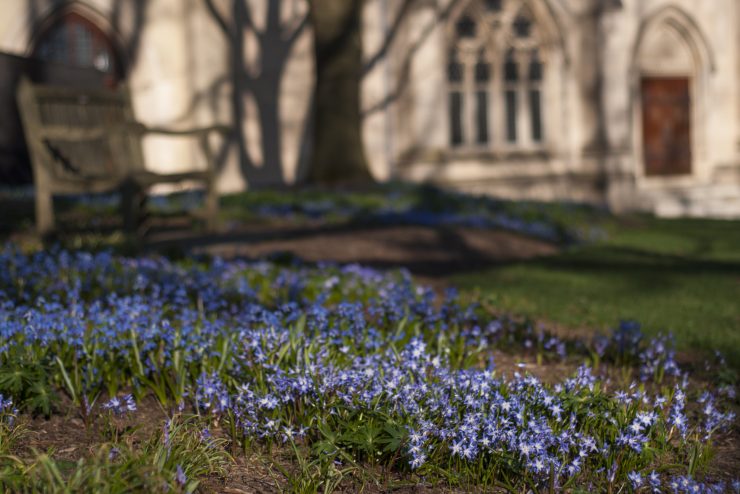The Rev. Canon Dana Colley Corsello

Today’s Gospel: John 9:1-17
Everyone has heard the adage, “The apple doesn’t fall from the tree.” One Google search revealed its German origins and claimed it was found in print as early as 1605 in the book Aroemiologia Polyglottos by Hieronymus Megiser. However, I would wager that its etymology is biblical. There are a handful of verses in the Old Testament that assert the sins of the parents will be visited upon the third and fourth generations of their children. The mother of a guy I once dated sneered the ol’ apple-doesn’t-fall-from-the-tree proverb as a warning to me about his father, her ex-husband. Let’s just say she meant it as an omen of bad tidings.
Jesus doesn’t waste any time correcting his disciples about this very issue. “Neither this man nor his parents sinned; he was born blind so that God’s works might be revealed in him” (vs. 3). It has always bothered me when I hear people say that he/she comes from a “good” family (often in the context of marriage). As I see it, all families have positive and negative qualities, histories and members, and we shouldn’t allow class or origin to determine or label whether one is of good or bad stock. Jesus certainly didn’t. One of the reasons why I love him is because he knows and sees all and judges us equally, regardless of where we came from and whose people we are. Nor is his forgiveness conditional.
Just like you, I know bad apples in the “best” of families and good apples in “notorious” ones. I also know deep in my core (pardon the pun!) that God lets us stand on our own. At judgement, there will not be a spreadsheet of the sins of my ancestors—I will have to own up to all of mine. In these last few weeks before Easter, let’s take a fearless moral inventory of our own shortcomings, and let’s celebrate our selfless successes knowing that the spittle of Jesus’ love will open our eyes to his merciful love for one and all.
Dana+
God, give us grace
to accept with serenity
the things that cannot be changed,
courage to change the things
that should be changed,
and the wisdom to distinguish
the one from the other.
–Reinhold Niebuhr